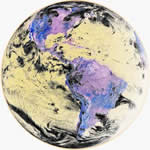Love Is Not Love
By Courtenay Trinder
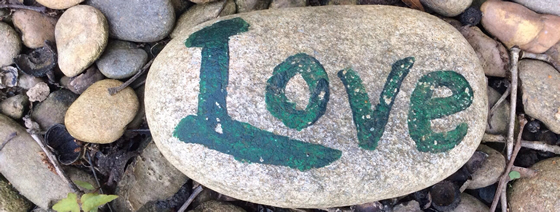
It has been dangerously claimed that “Love is not love, which alters when it alteration finds, or bends with the remover to remove. O no; it is an ever-fixed mark … Love … bears it out, even to the edge of doom.” i
But we don’t have to go back to Shakespeare and the 17th Century to find this message. I walk through the mall and see T-shirts emblazoned with “I will not give up. End of story.” Would we be so inclined to stay in toxic relationships if we weren’t saturated with these myths of love?
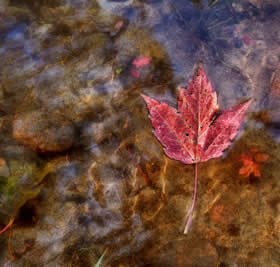
Nature is kinder. She knows there is a time for rest. Harvest, loss and release, even grief. Mourn when the seasons change, but don’t think you can cling to the summer rose forever.
It is autumn in Australia. The dry winds are blowing across the tawny yellow grass. Bruise-coloured clouds darken the dawn sky. Lightning strikes; we look up and hope for rain. The scent of earth is ripe in the air.
Growth is a principle of all nature, including human nature. And so is rest. I am entering the Season of the Crone. I have told my story. Dreamed my dreams, let them go, and found they grew, and changed. The Dreams of the woman I am are so very different from those of the girl I was. And now I love more truly, more deeply than I ever could have imagined in the dark days of my youth.
I have learnt the difference between possession and Love. Possession is Love’s grim shadow. Love delights in letting go. Possession feeds on power over the object. Possession is the instinct of Ego. It can never be fulfilled. Love feeds the soul, and grows the more it gives. Love knows how to hold on tightly and let go lightly. Autumn, the Fall, is ready to let go, for the sake of growth in Spring.
Praising the vision of love as an “ever-fixed mark,” unchanging, is to equate love with stagnation. And to love without hope, to love to the “edge of doom,” is not love at all. It’s suicide in slow motion.
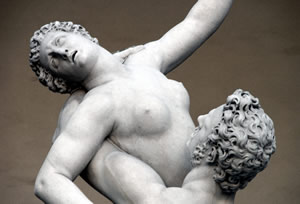
Love, like Life, must leave room to evolve. Love allows each partner the freedom to seek fulfilment. Love delights in the other, even if it is rubbed raw by the differences. Love can yell, howl, grit its teeth at the sound of slurping soup or the sight of wet towels left in a heap on the bathroom floor. But Love also gives us certainty, perspective, and clarity that the little irritations are trivial compared to the greater joys.
Love does not control, belittle, or undermine us as individuals. I am no one’s “Baby.” I am a woman, a Mother, connected to my Goddess. And I know there is a time for the Fool and a time for the Hermit – and everything in between.
I read through reports at work that say domestic violence is “drug and alcohol” related or the result of an abusive childhood. This is like saying there was a lamp on the table when he killed her, and therefore lamps contribute to family violence. Inhibition may decrease with substance use. An abusive childhood may lead to a tolerance for violence, like a high pain threshold. But ultimately the cause of domestic violence is that, on some level, we believe a lie, perpetrator and victim.
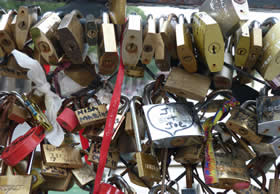
Violence happens when we believe power and possession have a place in our partnerships. Violence isn’t triggered as a reaction to an incident. It isn’t a switch that was flicked on in a darkened room. It is the outcome of a value system. I can admit now, with time, safety and hindsight, that I chose my slavery willingly. I hunted out my Monster. I gave him the power to hurt me, and I accepted his behaviour as “normal.”
And the best day in my life was the day I gave up.
When I let go of the girl I was and her bitter possession, I began my quest to become a woman. The Goddess took mercy on me. She has shown me the treasures of snow, of growing old, and accepting all things evolve. Only then could my heart be healed.
The spell for True Love is written in all of us. It can be blurred by experience, but it can never be erased. As children, Love was part of our primal programming. We cried and expected comfort. We nuzzled and cooed; we had no façade. We were present, genuine, and ready to meet the world with an open heart. If we are neglected, our needs never fulfilled, we may lose touch with ourselves and our ability to nurture others. But we don’t forget. Nature is kind that way, and life gives us many chances to love. We just need the courage to take a chance. My miracle was the birth of my son.

I found I could love; reasonless, big, mad, crazy love. I sat on the couch with him for hours playing “I got your foot.” When he laughed, I laughed too. I’m genuinely thrilled when he has a really successful nose blow, even though I’m the one holding the tissue. Despite the sleep deprivation, the sound of his bare feet slapping up the hallway at three a.m. is my keenest joy.
I can say, unlike Shakespeare’s sonnet, my love changes and grows every day. My love is not an ever-fixed mark. Each new mood, each fit of temper, each milestone my son reaches, then the next struggle--these are all adventures I want to share with him.
I know if I have loved him right, the time will come to let him go. He won’t call. I might see him at Christmas and Easter. And that’s as it should be. If I’ve loved him right, he will have a big heart. He will have the confidence to give his heart completely and sweetly, and it will guide him on his own journey.
The word “love” is dangerously misrepresented in our culture. “Nourish,” on the other hand, means to enrich, to promote development, provide intellectual and emotional sustenance, to cherish and foster. I nourish my son, and he nourishes me. And if life gives me the chance to love him “to the edge of doom,” then it would be no doom at all, but a blessing just to be there, together through trial as well as triumph.
And when it’s time for him to go and have his own adventures … I’ll get about 100 cats. And I’ll love them too.
__________________________
i William Shakespeare, Sonnet 116, 1609
Read more about Courtenay's harrowing journey to freedom and love here.
About the author
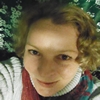
Courtenay Trinder completed her B.A. in Art History and Curatorship in 1994. Since then, she has worked as a phone psychic, a dog walker, an art teacher for pre-schoolers, and at the Canberra Theatre. The Weight of Lies, her first novel, took twenty years to finish, and is available here. She lives with her whippet Tinker, a Rabbit that looks like Hitler, and a beautiful little boy who has taught her everything she knows about love.
Did you like the article? Subscribe here to our New Article Email Alert or RSS feeds.
Sharing is caring! Don't forget to share the love, and keep the conversation going by leaving a comment below:
Advertisement
